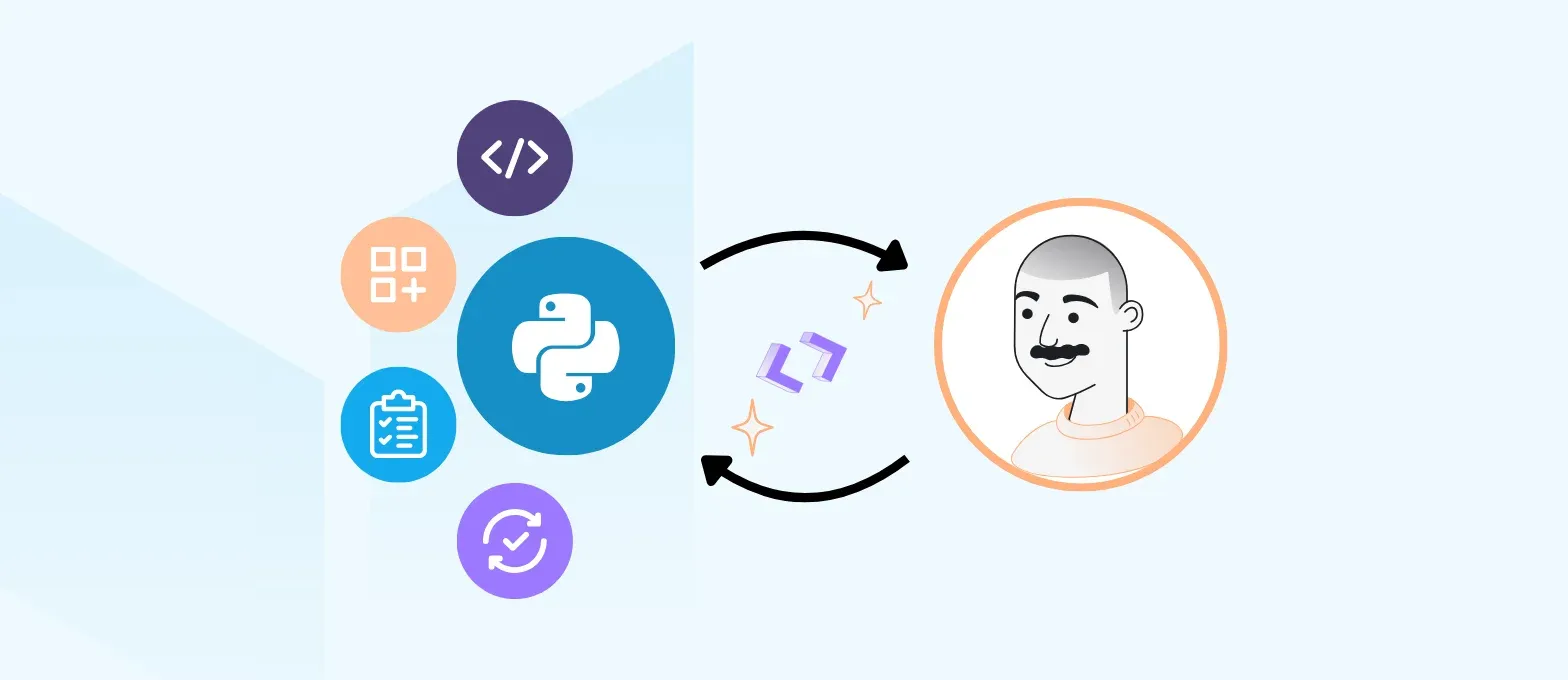Jobsity’s Role Spotlight Series: Python Developers

Welcome to Jobsity’s Role Spotlight Series, where we answer your questions about some of the most in-demand tech professionals.
This week, we’re taking a look at Python developers. What do they do? What kind of education do they need? What should employers look for when hiring a Python dev? And how do they impact various industries?
Let’s find out.
What Is a Python Developer?
Python developers specialize in, well, Python. That's the obvious part–but what is Python?
Python’s a programming language used to develop, debug, and maintain software applications. It's known for its simplicity and readability. Python is especially popular in web development, data science, and machine learning. It allows developers to create web applications, analyze data, and build AI models.
Python is also used for automation, scientific computing, software development, game creation, embedded systems, network programming, and education, making it a valuable tool across industries. We’ll talk a little about that in the coming sections. Python developers collaborate with departments across the board: other developers, data scientists, and stakeholders. Their end goal is, of course, to create efficient and scalable solutions that meet business needs.
Python developers, as with other devs and engineers, typically hold a bachelor’s degree in computer science, software engineering, or a related field. Many also pursue advanced degrees or specialized certifications to keep them up to date or to specialize in a particular project type.
Hands-on experience is also key. Many Python developers gain practical skills through internships, coding bootcamps, and personal projects. Don’t count an excellent dev out of the running just because they followed a “less traditional” educational path!
Tools and Platforms Used by Python Developers
Python devs use a wide variety of tools and platforms to build and optimize applications:
- Frameworks: Django, Flask, FastAPI
- Libraries: NumPy, Pandas, TensorFlow, scikit-learDatabases: MySQL, PostgreSQL, MongoDB
- Version Control: Git, SVN
- Cloud Services: AWS, Azure, Google Cloud Platform (GCP)
- Development Tools: Docker, Kubernetes, Jenkins
These tools aren't the only skills a Python dev needs (we'll cover soft skills in a moment), but they're an excellent foundation.
Industries Benefiting from Python Developers
Python devs are important members of the team, no matter the industry:
Healthcare: Python developers develop applications for patient management, predictive analytics for disease detection, and tools for medical research, enhancing overall healthcare delivery.
Energy: Python devs build systems for energy management, predictive maintenance of equipment, and data analysis for optimizing energy usage and integrating renewable energy sources.
Manufacturing: In manufacturing, they automate production processes, analyze data for quality control, and develop systems for supply chain management and predictive maintenance.
Food: Python developers create software for tracking food safety and quality, forecasting demand to optimize production, and analyzing consumer data for marketing strategies.
Finance: Python devs develop algorithms for trading, detect fraudulent activities, manage financial risks, and build personalized financial services using customer data.
What Should You Look For in a Python Developer?
A great Python dev combines strong technical skills with problem-solving abilities and an analytical mindset. Naturally, they need a solid understanding of Python, as well as experience with the relevant frameworks and libraries we mentioned above. Familiarity with databases and cloud platforms is also an advantage.
But it's about more than the technical chops: when you're hiring a Python dev, look for candidates who are detail-oriented, adaptable, and willing to upskill. This is an important one: Python developers need to be prepared to stay updated with the latest technologies and best practices.
They should also have exceptional communication skills. Python developers often work with mixed teams of technical and non-technical stakeholders. When interviewing, ask for examples of times when the candidate has to explain a concept or solution to colleagues with varying levels of tech expertise.
You should also look for a track record of end-to-end project completion. Because they're so versatile, the right Python dev can move from task to task, spending years with your team and developing along the way. You need someone who's in it for the long haul, and willing to grow with your organization.
That’s Where Jobsity Comes In
Our approach to staffing helps you level up your tech team, with long-term payoff. We find your ideal candidate, on your timeline, in your budget. We pride ourselves on taking the hassle out of hiring.
Jobsity devs stand head and shoulders above the rest, with an average retention rate of over 3 years. They represent the top 3% of LATAM talent, specializing in programming languages such as Python, Java, and Scala.
That’s why companies like McGraw Hill and Creed Interactive trust Jobsity to provide the talent they need to make their projects a breeze.
Want a risk-free trial? Book a call today.
Donna Kmetz is a business writer with a background in Healthcare, Education, and Linguistics. Her work has included SEO optimization for diverse industries, specialty course creation, and RFP/grant development. Donna is currently the Staff Writer at Jobsity, where she creates compelling content to educate readers and drive the company brand.
